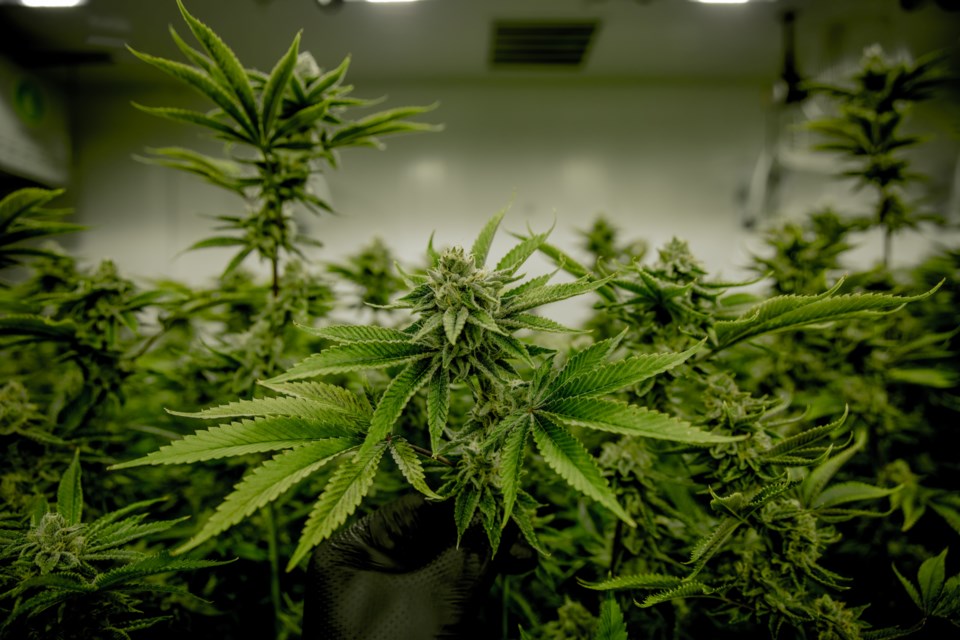In its Oct. 6 virtual meeting of Committee of the Whole, Bradford West Gwillimbury Council received a 55-page report on Agricultural cannabis, proposing a new town-initiated Zoning By-law Amendment that would ban the cultivation of marijuana on the specialty muck soils of the Holland Marsh, and establish controls on cultivation elsewhere in the municipality.
The report followed a public consultation process and public planning meeting, and recommended new zoning by-law provisions related to licensed cannabis cultivation as an agricultural use.
“It’s been a process. I think we’re the first in the province” to regulate cultivation, said Coun. Gary Lamb.
The councillor noted that the Marsh is unique in its soil characteristics, and there have been concerns over the coverage of marsh muck soils by greenhouse operations growing cannabis. Other concerns have included the impact on drainage, and odor.
“This is a difficult product, and it is affecting others,” Lamb said, noting that the by-law amendment will give the municipality enforceable powers.
“I realize it wasn’t as quick as a lot of people thought. You have to follow the process,” he said, urging council to approve the recommendations as quickly as possible.
Staff recommendations include amending agricultural zone permissions to prohibit cannabis cultivation in the Holland Marsh, as well as in NHS (Natural Heritage System) 1 and 2 zones.
The changes will require a minimum lot area of two hectares for any cannabis micro-cultivation operation; allow a maximum greenhouse coverage of 50 percent of a lot while requiring Site Plan Control; and ban the use of “hoop” temporary greenhouses for cannabis cultivation.
The by-law also sets separation distances – of 150 metres to the nearest Settlement area boundary, and 300 metres to any “sensitive” land use, such as schools.
Security fencing of at least 1.8 metres in height will be required around any cannabis operation.
“I really think this is a watershed by-law amendment,” said Mayor Rob Keffer. “The one disappointment is with OMAFRA (Ontario Ministry of Agriculture Food and Rural Affairs). They’re leaving it up to us.”
Mayor Keffer noted that cannabis cultivation in the Holland Marsh has created conflict with horticultural and specialty food crops, and has led to complaints about odor infiltration, into homes and storage facilities.
The Holland Marsh’s muck soil is “sacred soil for specialty crops,” agreed Coun. Peter Ferragine, asking what happens to existing cannabis operations and greenhouses within the Holland Marsh.
Manager of Community Planning Ryan Windle noted that once the Zoning By-law Amendment is approved, there will be an appeals process, before the provisions can take effect – and even then, existing legal cannabis cultivation will have “legal non-conforming status.”
Windle noted that a recently approved nuisance by-law, governing odor, and new Site Plan Control provisions can be applied to existing grow operations, but those operations will be grandfathered under the new Zoning By-law Amendment.
“Isn’t that contradicting what the zoning by-law entails?” said Ferragine, asking what happens if an existing operation wants to expand, or there is a sale of the property. “Would that use be continued?”
He was advised that the non-conforming status “does run with the land,” said Windle. “They could continue, as long as they don’t cease operation.”
“There is precedent where they could not expand their use,” added Clerk/Town Solicitor Rebecca Murphy, noting that ‘grandfathering’ is standard under any zoning change.
Asked if a clause could be inserted, that sale of the property would remove the permission, Murphy replied, “I don’t believe so. The use is tied to the property. The use is not tied to the ownership.”
It was pointed out that the grandfathering of cannabis cultivation in the Marsh only applies to legal operations. Illegal grow operations are subject to police enforcement, and immediate closure.
“It’s not going to make the problems go away that quick. It is going to be an uphill struggle,” said Deputy Mayor James Leduc of the amendment. “We have businesses out there that are legal, and some that are non-legal – and hopefully we can eliminate those.”
Council voted to recommend approval of the Zoning By-law Amendment, and ask staff to bring the necessary by-law forward for approval.



